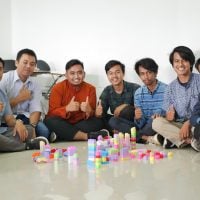Deadline: 28-Mar-23
The European Commission (EC) is offering grants for the Integrated assessment and monitoring of emerging pollutants in the marine environment.
Scope
- Contaminants of emerging concern including pharmaceutical products, endocrine disruptors and contaminants found in personal care products, including micro plastics and nano plastics, are increasingly detected in surface and marine waters, as well as in marine sediments. There are concerns about the impact of these contaminants on the marine environment, ecosystems and biodiversity as some of these substances exhibit impacts on aquatic organisms at very low concentrations, in particular on their reproduction and development. There are also concerns about the accumulation of these contaminants in different parts of the marine environment, including sediments and deep sea marine ecosystems and biota.
- Also, changes in the marine environment driven by the changing climate system (such as increases in water temperature, changes in salinity and in pH levels, increase in invasive species, etc.) may further influence the possible impacts of the contaminants of emerging concerns on the marine environment, ecosystems and biota.
- The projects are expected to develop and test integrated assessment and effect-based monitoring of impacts of contaminants of emerging concern on marine environment, ecosystems and biodiversity, and where relevant develop new contaminant thresholds. The projects are expected to adopt an integrated and systemic approach to the assessment of impacts, including not only impacts on marine biota but also the circulation, accumulation, magnification, persistence and degradation of the contaminants of emerging concern in marine environment and ecosystems (including marine sediments and deep-sea ecosystems) and their interaction with the changing marine environment. Projects should contribute to the improvement of understanding of the spatial and temporal distribution patterns of contaminants of emerging concern in marine environment and should close knowledge gaps as regards the characteristics, occurrence and impacts of those contaminants on marine environment and marine biodiversity. The projects should furthermore contribute to the understanding of impacts of contaminants of emerging concern on marine biota and on marine biodiversity and provide basis for the design of effective future measures for the protection of marine biodiversity from the impacts of such contaminants.
- The projects should recommend best practices in monitoring of the circulation of these contaminants in the marine environment and for the measurement of their impacts and risks, for their possible future integration into EU pollution monitoring and assessment systems, in particular under the Water Framework Directive, the Marine Strategy Framework Directive, the EU zero pollution action plan and for the implementation of the EU biodiversity strategy for 2030.
The projects funded under this topic will:
- Build links with the European Mission ‘Restore their ocean and waters by 2030’, in particular: HORIZON-MISS-OCEAN-2021-03-01: Mediterranean sea basin lighthouse: actions to prevent, minimise and remediate litter and plastic pollution, HORIZON-MISS-OCEAN-2021-03-02: Mediterranean sea basin lighthouse: coordination activities and HORIZON-MISS-OCEAN-2022-01-03: Mediterranean sea basin lighthouse: actions to prevent, minimise and remediate chemical pollution;
- Build links Mission implementation monitoring system that will be part of the Mission Implementation Support Platform for reporting, monitoring and coordination of all relevant implementation activities;
- build links and support the Mission ocean and water knowledge and information system (Digital Twin Ocean), in particular by contributing to pollution monitoring, forecasting, modelling and knowledge creation and data and sharing;
- Collaboration of the projects with research infrastructures (ERICs) such as ARGO and EMSO and with accredited laboratories is encouraged.
Funding Information
- The check will normally be done for the coordinator if the requested grant amount is equal to or greater than EUR 500 000, except for:
- Public bodies (entities established as a public body under national law, including local, regional or national authorities) or international organisations; and
- Cases where the individual requested grant amount is not more than EUR 60 000 (lowvalue grant).
Expected Outcomes
- In line with the European Green Deal’s zero pollution ambition, successful proposals will contribute to the protection of marine ecosystems and marine biodiversity from impacts of pollution, in particular from contaminants of emerging concern. They should analyse the impacts and risks of the contaminants of emerging concern on marine ecosystems and marine biodiversity and provide basis for an integrated assessment and monitoring of the pathways of these contaminants in the marine environment. This will contribute in particular to the implementation of EU zero pollution action plan for air, water and soil and of the EU biodiversity strategy for 2030.
- Projects results are expected to contribute to all the following outcomes:
- Filled gaps in knowledge about the impacts and risks of contaminants of emerging concern (e.g. pharmaceuticals, endocrine disruptors, biocides, micro and nano plastics) on marine ecosystems, including in marine sediments and on deep-sea ecosystems and on marine biota and on marine biodiversity, and including in relation to climate change mitigation and adaptation;
- Provided advanced understanding of possible interactions between the changing marine environment (e.g. increased temperatures, changes in salinity and pH, etc.) due to changes in the climate system and contaminants of emerging concern in the marine environment, including marine sediments and impacts on marine ecosystems and marine biota and biodiversity;
- Designed and tested solutions for integrated assessment, monitoring, modelling and forecasting of the circulation and impacts of contaminants of emerging concern in marine environment (including marine sediments and taking into account the climate change dimension –both mitigation and adaptation-), ecosystems and on marine biota, including establishing testing methods, effect-based monitoring protocols and ensuring sustained collection and sharing of data under FAIR principles;
- Build on, and widen, the data availability in European Research Infrastructures federated under the European Open Science Cloud;
- Developed tools and guidance to support the implementation of relevant EU policies (e.g., Water Framework Directive, EU Marine Strategy Framework Directive, and EU zero pollution action plan for air, water and soil, the EU biodiversity strategy for 2030).
Eligibility Criteria
- Any legal entity, regardless of its place of establishment, including legal entities from nonassociated third countries or international organisations (including international European research organisations) is eligible to participate (whether it is eligible for funding or not), provided that the conditions laid down in the Horizon Europe Regulation5 have been met, along with any other conditions laid down in the specific call topic.
- A ‘legal entity’ means any natural or legal person created and recognised as such under national law, EU law or international law, which has legal personality and which may, acting in its own name, exercise rights and be subject to obligations, or an entity without legal personality .
- Beneficiaries and affiliated entities must register in the Participant Register before submitting their application, in order to get a participant identification code (PIC) and be validated by the Central Validation Service before signing the grant agreement. For the validation, they will be asked to upload the necessary documents showing their legal status and origin during the grant preparation stage. A validated PIC is not a prerequisite for submitting an application.
For more information, visit European Commission.









































